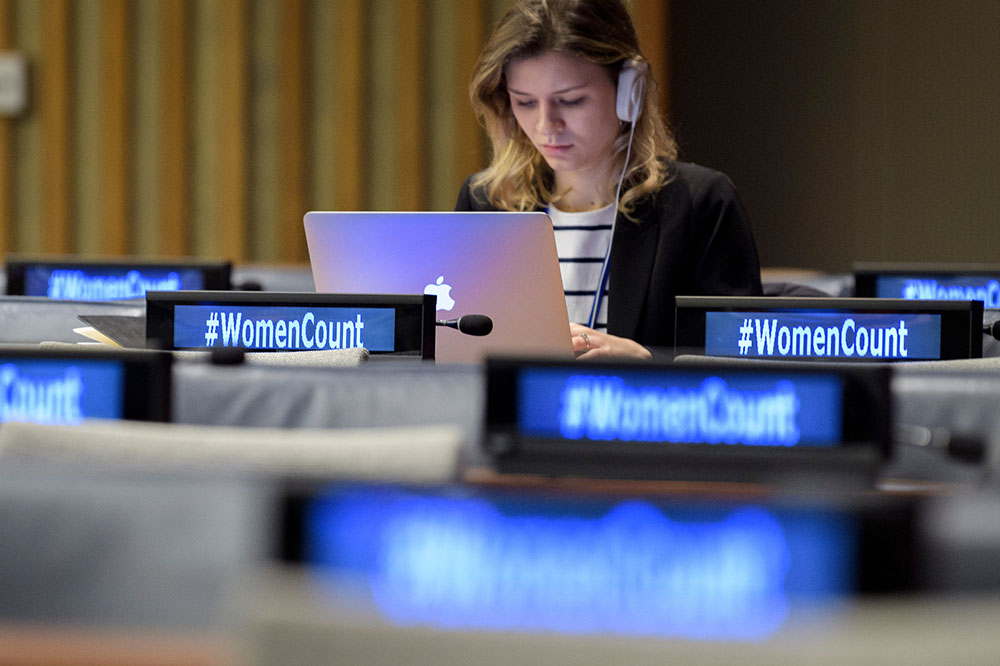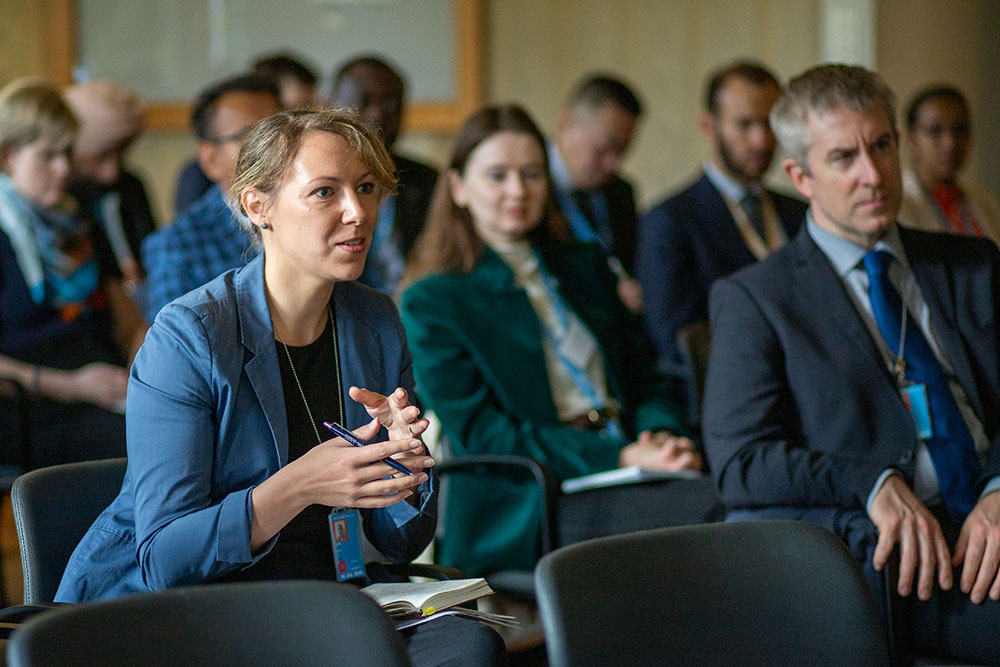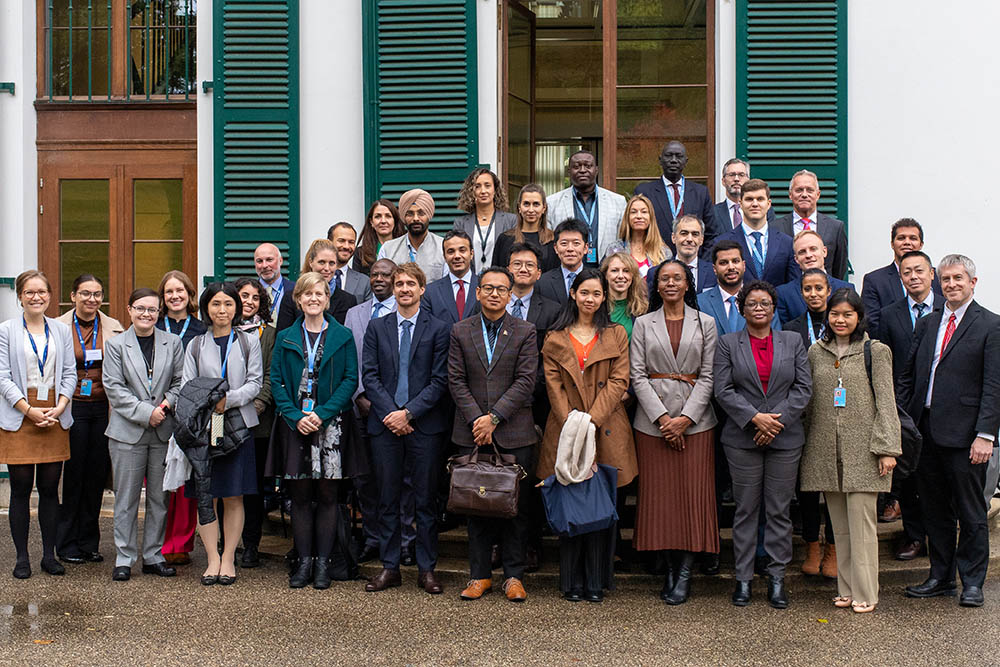Global tensions are on the rise, but multilateral disarmament is at an impasse. Longstanding goals like the eradication of nuclear weapons are becoming at once more urgent and more distant. Reinvigorating disarmament will require a newly diverse range of voices and ideas, and for that we need to do everything possible to level the playing field and ensure the effective participation of the entire international community.
Something needs to change. For over two decades, the world’s only dedicated forum for disarmament negotiations, the Conference on Disarmament (CD), has failed to make significant progress. Recognizing the issue, the United Nations Secretary-General recently called for a revitalization of disarmament bodies in general, and the CD in particular. In the face of serious geopolitical divisions and a lack of political will, increased inclusiveness is one area that holds out hope of a path out of this paralysis.
As it stands, the forums in which global disarmament agreements are shaped are occupied by too narrow a range of voices. Women, for instance, make up only 34% of the diplomats accredited to arms control and disarmament forums. They also accounted for fewer than 10% of the speakers during the recent general debate in the General Assembly. Geographical representation is also a longstanding issue. Nuclear disarmament efforts in particular have sometimes been perceived as marginalizing the priorities of the Global South, which ties into broader concerns about equal participation in multilateral disarmament processes.

These imbalances and inequities matter because broader participation in disarmament processes could lead to more creative, effective and durable solutions. Diverse teams understand tasks better, solve problems more easily and make fewer mistakes, something that has also proven relevant in the field of non-proliferation. It has long been known that women’s participation in peace processes, meanwhile, increases the probability of subsequent agreements lasting for more than 15 years, sometimes by as much as 35%. And when civil society representatives participate, the resulting peace agreements are some 64% less likely to fail. As UN High Representative for Disarmament Affairs Izumi Nakamitsu noted in October 2024, “if we are to make concrete, sustainable progress in disarmament, we must embrace the principle of inclusivity”.
Barriers to participation
The climate crisis, the blistering pace of technological change, rising inequality and escalating geopolitical tensions present a “polycrisis” of interconnected factors that generate heightened insecurity. This only complicates a disarmament landscape already itself littered with treaties and organizations, the UN alone boasting some 27 disarmament treaties. Even understanding the challenges at hand is difficult. Knowing how to address them effectively via highly technical and procedural disarmament forums is another matter altogether, yet this is the key to driving meaningful change.
Effective participation is also undermined by a prevalent lack of trust. As research conducted by UNIDIR has shown, this inhibits desirable disarmament outcomes at multiple levels, both within the United Nations itself and between individual Member States. Confidence in the UN is particularly low – and still waning – in the Middle East, North Africa, Latin America and Eastern Europe. This trust deficit weakens multilateralism by undermining moves towards collaboration and engagement in disarmament forums, not to mention wider multilateral peace and security initiatives.

Fostering trust, building capacity and broadening participation
Overcoming these barriers requires sustained efforts to foster trust, build capacity and ensure equal access to disarmament processes by levelling the playing field. As the High-Level Advisory Board on Effective Multilateralism has pointed out, inclusive and effective multilateralism necessitates a transition towards more “evenly distributed, networked and accountable decision-making”. The recently adopted Pact for the Future reiterates this call, outlining the hope that all Member States can “meaningfully participate in global decision-making in multilateral institutions”.
The issue then is how to get there. Only access to a solid evidence base and up-to-the-minute knowledge can truly build capacity amongst disarmament and arms control policymakers. And this reinforced capacity can only drive concrete action once they know how to navigate the highly technical governance frameworks and forums in which major decisions are made. Since trust between States is also critical to meaningful cooperation and broad participation in disarmament processes, spaces that promote dialogue, partnerships and coalitions are also a crucial precondition to progress.
Capacity, diversity and effective engagement
Conscious of these needs, the United Nations Institute for Disarmament Research and the United Nations Office for Disarmament Affairs are working to level the playing field by building both capacity and trust amongst Member States. In September 2024, we welcomed 47 newly arrived, Geneva-based diplomats from 38 countries to the latest edition of our Disarmament Orientation Course (DOC). This annual course sets out to equip diplomats with the knowledge and skills required to navigate the field of disarmament and shape its future.
Addressing current trends and developments in key thematic topics, the DOC promotes participation in Geneva-based processes and builds networks of trust and collaboration amongst diplomats from diverse backgrounds. By doing so, it addresses the acute need for a more inclusive dialogue in disarmament forums, ensuring that all voices – regardless of gender, region or background – are heard and valued.
As DOC participant and Egyptian diplomat Mahmoud ElNasharty put it:
“It is crucial and important not only for those with the capabilities to undermine efforts at maintaining global peace and security, but everyone that might be affected by such a threat to peace and security, to have a voice.”
The work of the DOC complements other initiatives in the same vein, including UNODA’s Disarmament Fellowship Programme, which has taken on over 1,100 officials from 172 Member States since 1979. The Programme facilitates the training and specialization of national officials, particularly in developing countries, to enable them to participate more effectively in international forums addressing disarmament, non-proliferation and arms control issues.
Ayaka Sasagawa of Japan, a diplomat and DOC participant, stressed the importance of such initiatives:
“It was helpful to have a pointed explanation of the various disarmament fields. In particular, I was deeply interested to hear the thoughts of experts from UNODA and UNIDIR on the relation between military AI and LAWS.”
The recent paralysis in multilateral disarmament is linked to a wide variety of factors – and compounded by today’s volatile global security environment. While inclusiveness alone is no panacea, it does constitute one of the various ingredients required to make real progress. The international community must recognize that innovation in disarmament necessitates novel, collective solutions rooted in broad representation and a renewed commitment to effective multilateralism. Capacity-building initiatives that enable the UN’s full diversity of diplomatic representatives to engage more effectively have a vital role to play in this.
The road ahead is undoubtedly difficult, but by fostering trust, building capacity and ensuring meaningful participation, we can begin to create a future where our shared aspirations for disarmament once again become concrete achievements.


